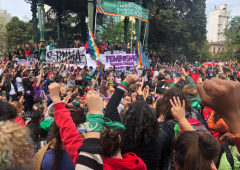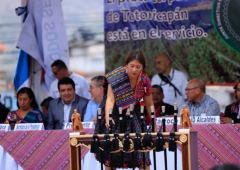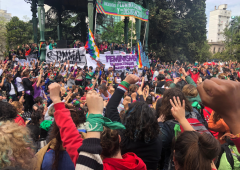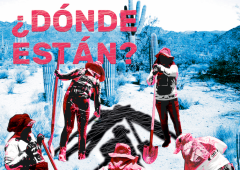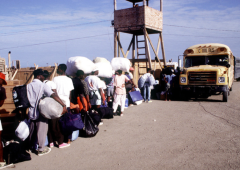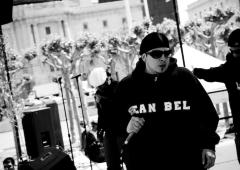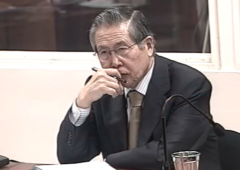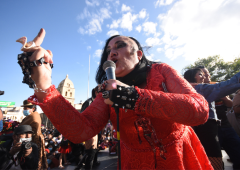Articles by: NACLA
A continental feminist network enshrined its commitment to plurinationalism. What comes next in the collective struggle of women and trans, travesti, and nonbinary people across the hemisphere?
Grassroots migrant communities in the northern border region have organized plurinational politics from below, pushing back against criminalization by asserting plurality on their own terms.
Ancestral authorities played a decisive role in counteracting a right-wing backlash. In their vision for liberation, alternatives are built from the grassroots, regardless of the government in power.
In Colombia’s Pato River valley and wider Caguán basin, former combatants are caught in the crosshairs as peacebuilding efforts clash with dissident groups in the struggle to define the region’s legacy.
Una red feminista continental ratificó su compromiso al plurinacionalismo. ¿Que viene ahora en la lucha de mujeres y las personas, trans, travesti y no binaries a lo largo del hemisferio?
La desaparición atraviesa las sociedades de las Américas. El número del NACLA Report "¿Dónde están?" aborda el dolor profunda, la pena y la vida emocional de las luchas dignas en la región por la justicia.
Old racist tropes demonizing Haitians as uncivilized practitioners of barbaric or mysterious rituals have been revived, once again casting immigrants from Haiti as dangerous outsiders unworthy of protection or empathy.
In the tradition of music as a medium for struggles for freedom, Rod Starz of hip hop duo Rebel Diaz insists on wielding dissident cultural resistance to strengthen solidarity between the Americas and Palestine.
The former strongman’s political project lives on in his ideology of Fujimorismo, championed by his polarizing daughter. Peru’s collective memory will be the judge in the face of enduring impunity.
Funcionarias de Argentina, Bolivia, Chile, y Panamá relatan sus experiencias y los desafíos de navegar instituciones estatales coloniales, patriarcales y racistas.
Para la feminista anarquista María Galindo, el Estado plurinacional siempre estuvo condenado a reproducir la opresión. Una alternativa radical y anticapitalista exige repensar las relaciones coloniales y patriarcales.
As human rights violations under El Salvador’s more than two-year-long state of exception continue to mount, a bipartisan group of U.S. lawmakers seeks to whitewash the abuses.

